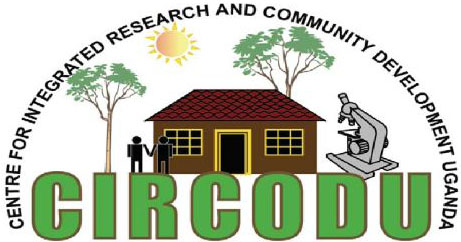Kampala – Uganda: Following President Yoweri Museveni’s ban on selling charcoal in the northern region of Uganda, the country’s citizens are exploring innovative solutions to address energy challenges.
A top NGO in Kampala, the Centre for Integrated Research and Community Development Uganda (CIRCODU) has equipped 28 trainers with Briquette and Energy efficient cook stove production skills in the central region district of Mityana.
The training has come on the heels of a new study by scientists that reveals a huge potential for briquettes made from banana peels in the country.

In the study titled “The Production and Adaptability of Carbonized Briquettes from Banana Peels in the Banana-Staple Society in Kampala, Uganda, the banana briquettes have a promising avenue for sustainable and locally sourced alternatives to traditional cooking fuels considered hazardous to human health.
The 2023 study has been published by the Center for African Area Studies at Kyoto University and also in the journal African Study Monographs.
The CIRCODU Project
The training project was commissioned by PELUM Uganda, which unfolded from September 18th to 22nd, 2023, at the National ELUM Centre in Mityana.
The significant effort was aimed at promoting sustainable energy practices and empowering smallholder farmers
Commissioned by PELUM Uganda, CIRCODU designed specific training materials for Briquette and Energy Efficient Cookstove Production in order to empower affiliate smallholder farmers with the skills and knowledge needed to embrace sustainable energy solutions.

Over five days, trainees immersed themselves in the intricacies of Carbonized Briquettes production and the construction of Energy Efficient Cookstoves.
The sessions were hands-on, where participants actively engaged in the construction of Fixed Institutional Woodstoves and Domestic Charcoal/Briquettes Stoves.
This practical approach not only enhanced their skills but also provided tangible examples for future replication within their communities.
The ripple effect of this Training of Trainers program is profound. Smallholder farmers, now equipped with the skills to produce Carbonized Briquettes and construct Energy Efficient Cookstoves, are poised to bring transformative change within their communities.
“These sustainable energy solutions will not only reduce environmental impact but also enhance cooking efficiency and contribute to cost savings for these farmers,” says Ms. Caroline Gabeya, a Trainer with CIRCODU.
What the study reveals
The study has shed light on the potential of banana peels as a renewable and cost-effective alternative to charcoal for cooking in Uganda.
Bananas, deeply ingrained in Ugandan culture and diet, have now emerged as a promising source for biomass briquettes, providing a sustainable solution to the escalating costs of traditional cooking fuels.

Bananas, not only a staple food but also a versatile resource for various household needs, are now being explored as a viable material for carbonized briquettes.
The study, conducted in Kampala, the capital of Uganda, focused on understanding the suitability of banana peels as a replacement for charcoal, which has been the primary cooking fuel in the region since the late 2000s.
The research, based on a fieldwork-based survey, delved into production practices, material accessibility, and the potential for expanding briquette production in a community where bananas are the main food source.
The findings revealed that banana peels, the biomass briquette material, are readily available throughout the year.
One of the key advantages highlighted in the study is the consistent availability of briquette materials. Unlike some biomass sources that may have seasonal limitations, bananas, being a year-round crop, ensure a steady supply for briquette production. This aspect contributes to the reliability and sustainability of banana-based briquettes.
The rise in charcoal prices, a trend observed in recent times, adds urgency to the need for alternative cooking fuels. With bananas being a common ingredient in Ugandan cuisine, the transition to briquettes offers a convenient and culturally fitting substitute for charcoal.

The study predicts that as charcoal prices continue to escalate, the production and utilization of banana-based briquettes are expected to rise, providing an accessible and environmentally friendly cooking fuel option.
Background of CIRCODU
CIRCODU, a non-profit organization established in 2007, has been a pioneering force in research-based approaches to health, sustainable energy, and environmental conservation.
With a commitment to making a positive societal impact, CIRCODU’s expertise spans consultancy services, independent monitoring and evaluation, research initiatives, and comprehensive training programs.
A testament to CIRCODU’s commitment to sustainable energy is its Cookstoves and Fuel Testing Laboratory, established in 2010. Recognized and supported by the Clean Cooking Alliance, the laboratory operates under ISO/IEC 17025:2017 guidelines and holds a certificate from the Uganda National Bureau of Standards (UNBS).
The collaboration between CIRCODU and PELUM Uganda is a testament to their shared commitment to community development and sustainability.
As the success of this initiative reverberates, CIRCODU remains steadfast in its dedication to advancing sustainable energy practices and empowering communities.
The organization looks forward to exploring further opportunities for collaboration and making a lasting impact on the lives of those they serve.
About The Author
Arinaitwe Rugyendo
Rugyendo is the Founder and Editor-in-Chief of ResearchFinds News. He’s an accomplished journalist with a rich background in the media industry in Uganda. With over two decades of experience, Rugyendo has held various roles including cab reporter, Bureau Chief, Managing Editor, and Digital Media Editor at renowned publications such as Daily Monitor and Red Pepper. Throughout his career, he has demonstrated a commitment to delivering high-quality journalism and staying at the forefront of media trends. In addition to his journalistic pursuits, Rugyendo is currently pursuing a Ph.D. in Journalism and Communication at Makerere University. He has been recognized for his outstanding leadership and commitment to social change as a Desmond Tutu Fellow and Crans Montana New Leader. Rugyendo also serves as the Chairman of Young Engineers Uganda and Uganda Premier League, showcasing his dedication to promoting excellence and growth in various fields. With a passion for driving innovation and pushing boundaries in media, Rugyendo continues to make significant contributions to the industry. His vast experience, academic pursuits, and leadership roles make him a respected figure in the Ugandan media landscape.
















